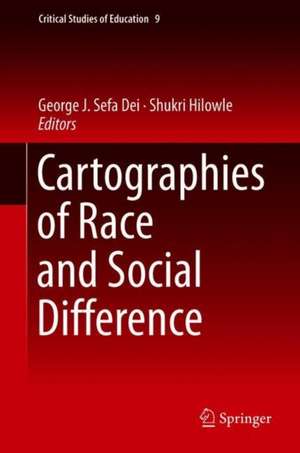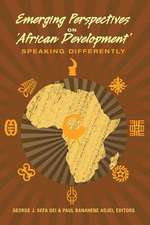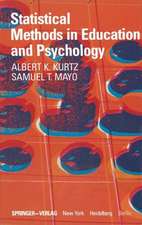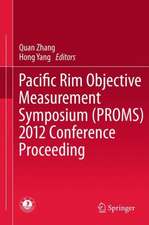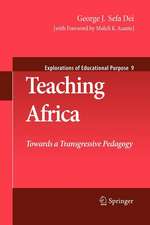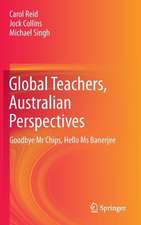Cartographies of Race and Social Difference: Critical Studies of Education, cartea 9
Editat de George J. Sefa Dei, Shukri Hilowleen Limba Engleză Hardback – 15 dec 2018
Din seria Critical Studies of Education
- 24%
 Preț: 575.44 lei
Preț: 575.44 lei - 15%
 Preț: 642.03 lei
Preț: 642.03 lei -
 Preț: 392.37 lei
Preț: 392.37 lei - 18%
 Preț: 787.91 lei
Preț: 787.91 lei - 18%
 Preț: 998.51 lei
Preț: 998.51 lei - 18%
 Preț: 1002.31 lei
Preț: 1002.31 lei - 18%
 Preț: 892.74 lei
Preț: 892.74 lei - 15%
 Preț: 635.15 lei
Preț: 635.15 lei - 18%
 Preț: 723.24 lei
Preț: 723.24 lei - 18%
 Preț: 778.45 lei
Preț: 778.45 lei - 15%
 Preț: 639.90 lei
Preț: 639.90 lei - 15%
 Preț: 643.84 lei
Preț: 643.84 lei - 18%
 Preț: 730.47 lei
Preț: 730.47 lei -
 Preț: 389.49 lei
Preț: 389.49 lei -
 Preț: 389.11 lei
Preț: 389.11 lei -
 Preț: 390.63 lei
Preț: 390.63 lei
Preț: 727.66 lei
Preț vechi: 887.39 lei
-18% Nou
Puncte Express: 1091
Preț estimativ în valută:
139.23€ • 145.76$ • 115.21£
139.23€ • 145.76$ • 115.21£
Carte tipărită la comandă
Livrare economică 05-19 aprilie
Preluare comenzi: 021 569.72.76
Specificații
ISBN-13: 9783319970752
ISBN-10: 3319970755
Pagini: 175
Ilustrații: XX, 168 p. 4 illus.
Dimensiuni: 155 x 235 mm
Greutate: 0.45 kg
Ediția:1st ed. 2018
Editura: Springer International Publishing
Colecția Springer
Seria Critical Studies of Education
Locul publicării:Cham, Switzerland
ISBN-10: 3319970755
Pagini: 175
Ilustrații: XX, 168 p. 4 illus.
Dimensiuni: 155 x 235 mm
Greutate: 0.45 kg
Ediția:1st ed. 2018
Editura: Springer International Publishing
Colecția Springer
Seria Critical Studies of Education
Locul publicării:Cham, Switzerland
Cuprins
Cartographies of Race and Social Difference: An Introduction, George J. Sefa Dei and Shukri Hilowle.- Chapter 1: The Trump Effect: Debunking the False Narrative of “Post-Racial” America, Shukri Hilowle.- Chapter 2: Renounce or Perish, Elisha Lim.- Chapter 3: Exploring the model minority: Deconstructing Whiteness through the Asian Canadian Example, Elisabeth Dennis.- Chapter 4: BORN TO WORK: An in-depth inquiry on the commodification of Indian labour and current discourses of migrant labour under the kafala system, Shirleen Datt.- Chapter 5: The Unbearable Lightness of Being Yellow: Whiteness and its Legacy on Japan’s Self-Image and Attitudes Toward the West, Claude Deschamps.- Chapter 6: Exporting Racism: Western Interventions and the Making of the Pashtun Cultural ‘Others’, Lailooma M Wardak.- Chapter 7: Disempowered, Disenfranchised and Disengaged: Balochistan in Focus, Mashail Imran.- Chapter 8: The Term & Discourse of “Hispanic” is Racist: Anti-Black and Anti-Indigenous Resistance in Toronto, Ontario, Canada, Andrea Vasquez Jimenez .- Chapter 9: Racialization of Gender, Work and the Visible Minority Women at Workplace: With a Particular Focus on African Black Women in Canada, Thoko Ngwenya.- Chapter 10: Reflections on Race, Whiteness and Multiculturalism, Marycarmen Lara-Villanueva.- Chapter 11: Re-Imaging Africanized Bodies in Eurocentric Spaces, John P Castillo.
Textul de pe ultima copertă
This book critically examines how race is constructed globally to intersect gender, class, sexuality, language ability and religion and answers some very important questions, like how does anti-black racism manifest itself within various contexts? Chapters in the book use the ‘Black and White paradigm’ as a lens for critical race analysis examining how, for example, the saliency of race and Blackness shape the ‘post-colony’, as well as the various ‘post’ colonial nations. The paradigm centers Whiteness as the lens of defining what and what is different. The negative portrayal of difference is anchored in the sanctity of Whiteness. It is through such analysis that we can understand how historically colour has been a permanent marker of differentiation even though it has not been the only one. It is through conversations and dialogue in the classroom that the book was created; given the current political shift in American and the rise of Anti-Blackness, anti-Indigeneity, Islamophobia andxenophobia. The book critically examines White supremacy, racialization of gender, “post-racial” false narratives, and other contemporary issues surrounding race.
Caracteristici
Highlights the globalization of race, social difference and racism Examines the interplay of Race, Indigeneity and Decolonization Explores historical dimensions of discussions on race and social difference
